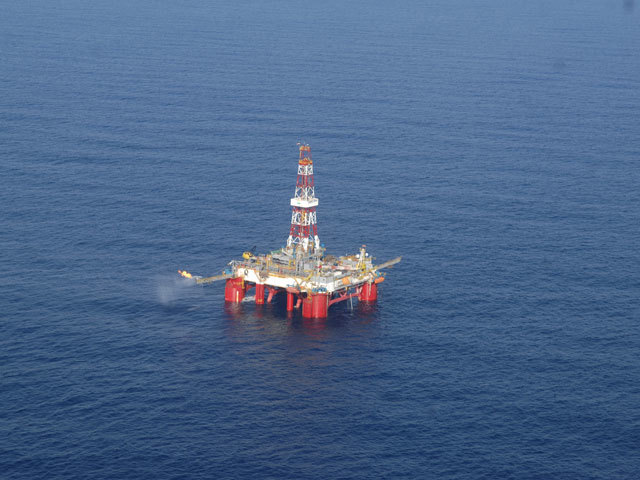
This was the year Petroleo Brasileiro SA investors got what they had sought for decades: a chief executive with a mission to streamline and an independent chairman. Now one of them is gone.
Clashes over everything from Formula 1 sponsorship to the spinoff of a fuel unit created a rift between CEO Aldemir Bendine, 51, and the board led by Vale SA CEO Murilo Ferreira, 62. Bendine, a former state banker, and Ferreira, the reserved mining executive who leads the world’s biggest iron-ore producer, have disparate personalities. And they disagreed on how to conduct business.
The internal tug of war undermined crucial decision making at the state-controlled oil producer at a time when it’s struggling to manage the industry’s heftiest debt load. Ferreira’s formal departure, announced Monday after a seven-week leave of absence, tests the government’s pledge for independent stewardship of Petrobras, something investors have been craving for years. If his replacement is viewed as prioritizing government policy, such as inflation fighting, over efforts to bolster the balance sheet, it will discourage investors.
In announcing Ferreira’s departure Monday, Petrobras didn’t provide any reasons. Luiz Nelson Guedes de Carvalho, who has been acting chairman since Ferreira took leave on Sept. 14, will remain in his position until the next ordinary board meeting.
Board Power
“The controlling shareholder lacks a sense of urgency about the company’s situation,” Mauro Cunha, a former board member who issued a statement criticizing the government’s idle handling of Petrobras when he left the position in March, said by phone from Sao Paulo. “It’s not enough to have an independent chairman. They need to empower the board.”
Petrobras shares, which surged more than 70 percent on the management reshuffle, are now worth less than when the year started. The company’s once investment-grade debt is now rated junk, and its borrowing costs in the bond market have doubled from a year ago.
Bendine and Chief Financial Officer Ivan Monteiro, 55, were recruited in February from state-controlled Banco do Brasil SA, where they successfully led the spinoff of an insurance unit. Their appointment was a deliberate move to appease investors and shake up a company mired in a sprawling corruption scandal and behind on its output targets.
New Independence
Ferreira was named chairman in March to replace Guido Mantega, the outgoing finance minister. He and two other executives from Vale who won seats on the board were a radical departure from a tradition of appointing cabinet ministers and allies of the government, which controls the Rio de Janeiro- based producer with a majority of voting shares but less than half of total stock.
Through Vale’s press department, Ferreira declined to comment on reasons for his resignation from the Petrobras board. The oil company also declined to comment.
Bendine, whose frequent outings with Sao Paulo celebrity socialites made him a fixture in gossip columns, is focused on striking deals to make cash. One of his most ambitious proposals was the sale of BR Distribuidora, Petrobras’s massive fuel distribution unit with more than 7,000 gas stations. His plans have stirred the ire of unions that fear job losses and managers who have been demoted and lost bonuses.
Meticulous Plan
Ferreira, a Catholic who goes to church regularly, was more restrained. He defended more deliberate moves like implementing a meticulous plan to cut costs, instead of selling key assets in a buyer’s market. Petrobras eventually decided to delay the fuel unit spin-off plan, and Bendine is now seeking partners to invest in the unit in exchange for a stake.
The board also rejected Bendine’s plan to restructure the company into two large divisions overseeing upstream and downstream, as the industry calls the businesses of crude production and refining, as well as the sale of 3 billion reais ($770 million) of local bonds.
Among Bendine’s achievements are the quick approval of 2014 financial reports that got delayed last year because of accounting audits, the reduction of an overly ambitious investment plan and an increase in fuel prices that had been kept low to help the government fight inflation. He has also negotiated contracts in which the company sells production vessels and leases them back.
Dictatorship Throwback
Under Ferreira, the board brought a level of transparency that Petrobras never had with government officials in the main seats, including one traditionally reserved for army generals, a remnant of the military dictatorship that ruled the country until 1984. The problem is that all this transparency has revealed that the company’s leaders haven’t seemed able to agree on much lately.
In a recent meeting, the CEO left the room and slammed the door after failing to win the board over topics including a Formula 1 sponsorship contract, said two people with direct knowledge of the event, who asked not to be named because it wasn’t made public.
Other decisions — such as the canceled IPO — have a more significant effect on its finances. Of its $128 billion of debt, $24 billion mature in the next two years, and it’s still not clear how Bendine is going to manage to pay for all that.
With Petrobras’s descent into a junk status, investors are more concerned about deleveraging than corporate governance issues, said Chris Kettenmann, chief energy strategist at Macro Risk Advisors.
“At this point, management needs to execute on its well- publicized plan of asset sales and deleveraging,” Kettenmann said in a telephone interview from New York.